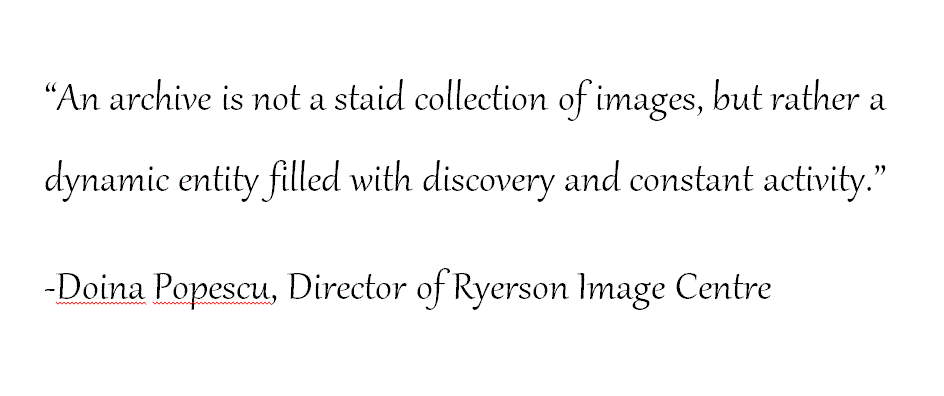
Doug Cass, Director of Library and Archives at the Glenbow, hosted two informative sessions for the JHSSA. On January 8, 2013, we were given a tour behind the scenes of the archives. This climate controlled area consists of rolling shelves allowing the archives to fill over 5 km of shelf space. The resources at the Glenbow are divided into two categories: the Archives house papers and photos donated by over 3000 businesses and individuals, and the Library is home to thousands of books, maps and newspapers relating to southern Alberta. We had an opportunity to look at archival materials from the collections of Jewish individuals and organizations, including records from the Calgary Jewish Community Council, the Jewish Historical Committee, the Calgary Jewish Academy and its predecessors (1920s to 1980s), the Jewish Star, the Beth Israel Players, and the Shaarey Tzedec. The Abraham Shumiatcher papers contain much valuable information. As the legal representative of many Jewish organisations, Shumiatcher held important documents. We also looked at the finding aids which outline the contents of the various collections.
Glenbow Archive’s website: http://www.glenbow.org/collections/archives/
“Search the Collections” towards the bottom of the page allows people to select different catalogues, databases and finding aids.
A second session on January 22 focussed on resources for genealogical research. The Glenbow has a collection of school yearbooks and school records, including attendance records for 7 school districts from the 1890s through the Second World War. These contain valuable registration information about each student’s family. The Glenbow is also the repository for the Canadian Pacific land sale records. Most homestead land in Western Canada was bought from three major sources; the federal government (National Archives), the Hudson’s Bay Company (whose archives are in Winnipeg), and the Canadian Pacific Railway (Glenbow Archives). The Glenbow has extensive records from companies in the coal industry including employment records which often contain useful personal information. Records from over 300 local clubs and organizations contain membership lists which often include information on registration forms such as a member’s profession and hobbies.
The Glenbow Library has Henderson Directories from the 1880s to the 1990s. These provide basic information about residents for every local street address. Another book in their collection: “The Western Canadians” indexes the Henderson Directories from different locations in western Canada. Cummins Homestead Maps from 1913, 1923 and 1927, and microfilm of the Canadian Census from the 1870s to 1911 are popular research tools. Other resources include newspaper clipping files arranged by subject, as well as microfilm for many small town newspapers in southern Alberta.
The session also touched on resources that can be found at other archives in Calgary and online. The City of Calgary Corporate records and archives include voter lists, tax records and building permits.
Henderson’s directories are also online.
The federal government’s land Grant records are at the National Archives, and can be searched online.
On February 5, archivist Agi Romer Segal led a workshop on resources available in the JHSSA collections. Agi introduced the archives with a short explanation of our history and mandate, and explained its gift agreement and Accession forms. She presented several methods of researching at the JHSSA: searching archival material through our Inventory, our list of Organizational Fonds, or our finding aids. Other important resources discussed included subject reference files (individuals, organizations and businesses), cemetery files, oral histories, photo files, Discovery back issues, newspaper clippings and copies of local Jewish papers from 1962 to the present. The workshop included a tour of our lending library, which is currently an underused resource, featuring books on genealogy and on Jewish history in Canada and Western Canada. We examined one of our finding aids, which continue to be a work in progress. This led to a discussion of opportunities for volunteers to help at the JHSSA. Volunteers are welcome to help organize archival accessions and create finding aids, or to do research and write articles or book reviews for Discovery.
More information on our archives can be found on our website: https://jhssa.org/research/
The workshops were all well attended and positively received. Many thanks to Doug, Agi, and all who attended.

